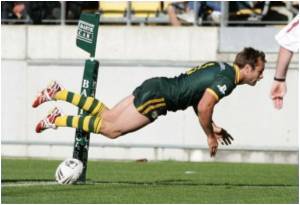Much has been printed suggesting gender-related differences in athletes' responses to sports-related concussion.

When asked why the researchers decided to study whether gender is a modifying factor in soccer-related concussion, Dr. Zuckerman stated, "The number of females playing sports has exponentially increased in recent decades, as has the controversy regarding concussion management in males vs. females. Our aim was to identify gender differences in neurocognitive testing in a highly regulated, homogeneous population, controlling for several possible modifying factors such as the number of prior concussions and the sport. Prior studies utilized mixed groups of high school and collegiate athletes, without controlling for several potential confounders. Dr. Solomon and Dr. Sills are experts in their field, and with their guidance, we thought this would be a relevant question to answer."
The authors examined information on symptoms and neurocognitive scores contained in databases covering athletes in central Tennessee and western Pennsylvania who had sustained concussions during soccer competitions. The researchers selected 40 male and 40 female patients who were matched, as closely as possible, for age, medical/psychiatric history, years of education, lack of special education assistance, history of psychiatric treatment, number of prior concussions, timing of pre- and post-concussion testing, and sport (all engaged in soccer). The matching process was undertaken to bypass any unforeseen confounders to observed male-female differences in neurocognitive-dependent variables. In each case, the researchers were able to collect data on baseline and post-concussion symptoms and neurocognitive scores that had been obtained using ImPACT™ (Immediate Post-concussion Assessment and Cognitive Testing), a commercially available software program used to evaluate sports-related concussions.
Based on the results of several earlier studies on gender-related differences in sports-related concussion, the authors tested the following four hypotheses: 1) female soccer players would report more symptoms at baseline and after concussion; 2) female players would have better baseline verbal memory scores; 3) male players would have better baseline visual memory scores; and 4) female players would have higher levels of neurocognitive impairments immediately following concussion.
To test these hypotheses, the researchers examined baseline and post-concussion scores of verbal memory, visual memory, visual-motor speed, reaction time, and impulse control, as well as the total number of symptoms that were reported. Using statistical analyses, the authors were unable to verify their first three hypotheses. The only significant gender-related difference that they could identify was that female soccer players reported a greater number of symptoms post-concussion. When asked if the findings were surprising, Dr. Zuckerman responded, "We were somewhat surprised and were not sure what to expect in such a tightly controlled population. Our hypothesis was that females would experience greater levels of acute, post-concussive neurocognitive impairment than males, fitting with what most of the prior literature says, but we found virtually no difference between males and females."
With a look toward the future, Dr. Zuckerman added, "It seems that there are different types of concussions that occur in different sports, possibly based on mechanism of injury and equipment. This study would be equally interesting to perform in a sport where headgear is routinely used, such as hockey."
Advertisement
Source-Eurekalert









